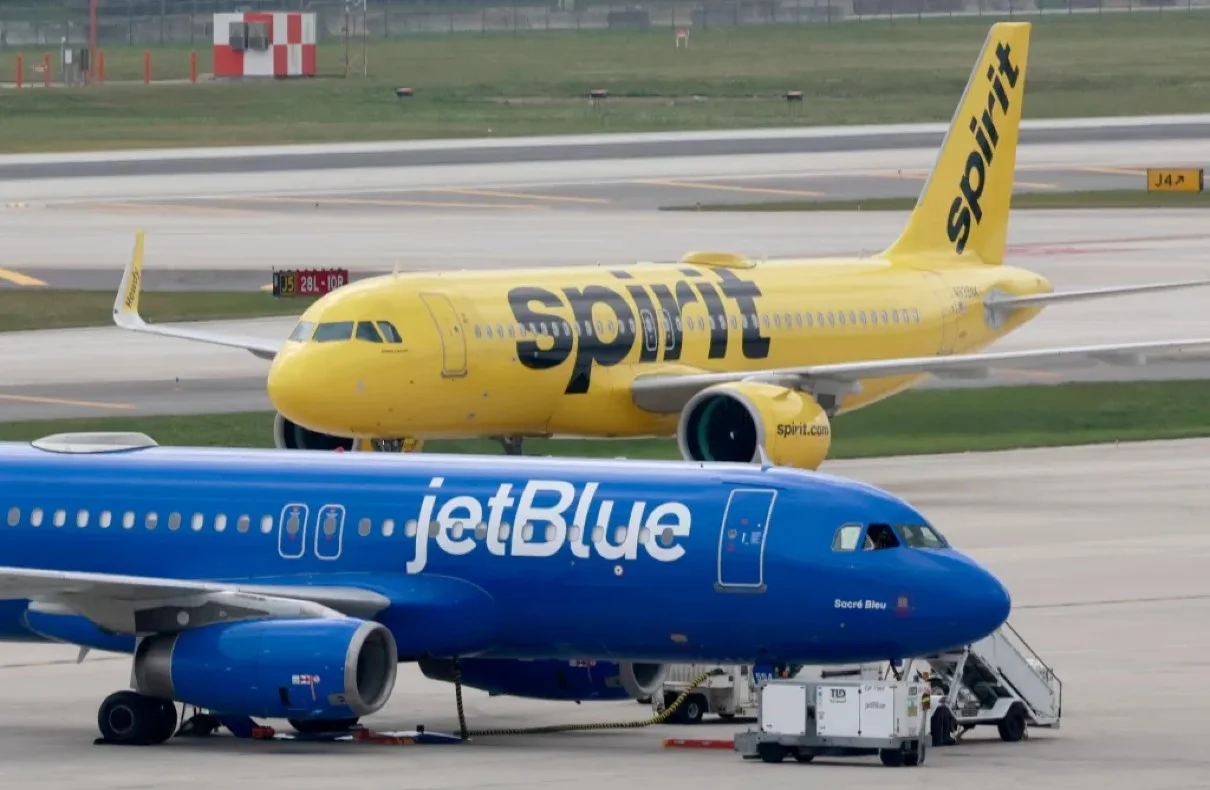In the world of airline mergers about JetBlue Airways and Spirit Airlines’ decision to abandon their merger plans has created a significant impact. The proposed union, which could have resulted in the creation of the fifth-largest airline in the U.S., was stalled due to legal and regulatory hurdles.
In an unexpected announcement on Monday, JetBlue Airways and Spirit Airlines confirmed that they had decided to drop their merger plans. This decision was primarily based on the fact that the companies found it unlikely to receive the necessary legal and regulatory approvals by July 24, as per their agreement.
Despite the termination, both companies maintained their belief in the merger’s procompetitive benefits. Joanna Geraghty, JetBlue’s chief executive, expressed in a statement that the merger was seen as a means to introduce a national low-fare, high-value competitor to the four major airlines – United, American, Delta, and Southwest. The airlines’ executives saw the $3.8 billion deal as pro-consumer.
North Texas School Closings List For Tuesday
The merger was facing significant legal challenges. U.S. District Judge William G. Young had blocked the merger earlier this year, stating that it violated antitrust laws. This ruling was a victory for the Biden administration, which has been attempting to block mergers in industries seen as overly concentrated. It marked the second time the Justice Department had won a case involving U.S. airlines.
With the merger plans scrapped, both JetBlue and Spirit now face the daunting task of navigating through a market dominated by four major airlines. Spirit, in particular, is facing financial and operational challenges. Similarly, JetBlue is grappling with issues such as reductions in the number of flights operated in and out of the New York area due to staffing shortages at a key air traffic control center.
Despite the challenges, both airlines expressed optimism about their future as independent entities. Ted Christie, Spirit’s chief executive, expressed confidence in his company’s future as a successful independent airline. On the other hand, some analysts believe that JetBlue might ultimately benefit from the failure of the merger.
According to consumer advocates, the failure of the JetBlue-Spirit merger could promote airline competition. Diana Moss, vice president and director of competition policy for the Progressive Policy Institute, stated that the decision by JetBlue and Spirit to call off their merger is good news for the flying public.
Skyscraper Sized Asteroid Set to Pass Within Just 1.7m Miles of Earth
From a legal perspective, Attorney General Merrick Garland saw JetBlue and Spirit’s decision to drop their plans to merge as a “victory for the Justice Department’s work on behalf of American consumers.” Garland stated that the Justice Department had proved in court that a merger between JetBlue and Spirit would have led to higher fares and fewer choices for tens of millions of travelers.
As part of the termination agreement, JetBlue will pay Spirit $69 million. Additionally, Spirit stockholders received approximately $425 million in prepayments while the merger agreement was in effect.
The news about the JetBlue-Spirit merger comes at a time when other U.S. carriers are also exploring mergers. In December, two other U.S. carriers, Alaska Airlines and Hawaiian Airlines, announced plans to merge.
Moving forward, both JetBlue and Spirit Airlines will need to find ways to navigate the market as independent entities. While the termination of the merger plans might present challenges, it also opens up opportunities for both airlines to redefine their strategies and carve out their unique spaces in the aviation industry.
